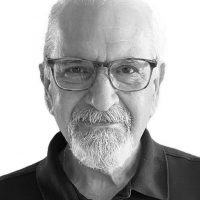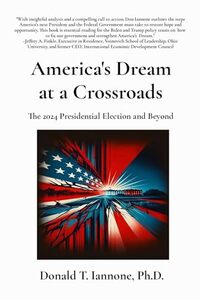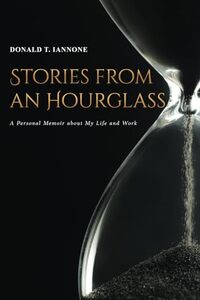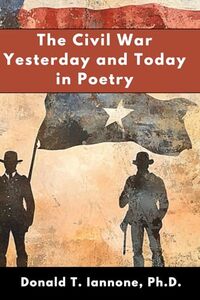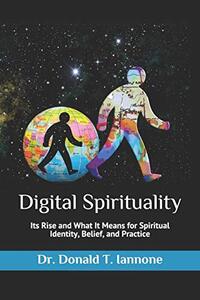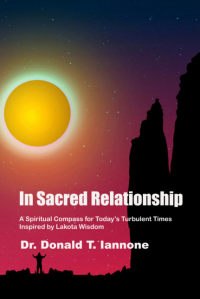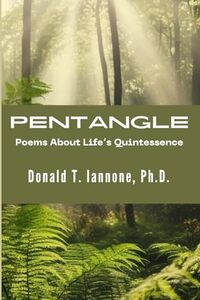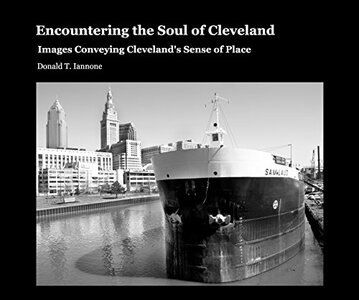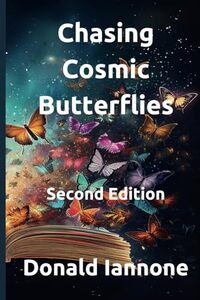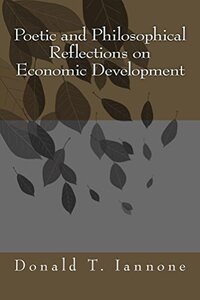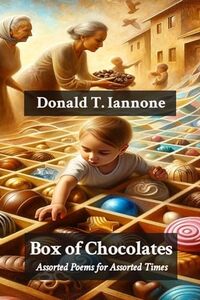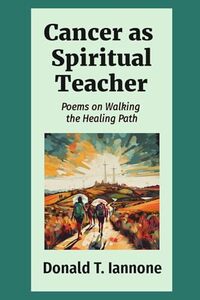Genre:
Historical Fiction Poetry General Nonfiction Business- Country: United States
- Books: 12
- Profession: Author and professor
- Born: 19 January
- Member Since: Apr 2024
- Profile Views: 3,474
- Followers: 175
- VISIT AUTHOR: Website, Facebook, Twitter, Instagram, Goodreads, Amazon, Linkedin,
I am the author of eleven poetry books, ten photographic essays, five nonfiction books, one fiction book, and many academic and professional articles and essays.
My latest book, "America's Dream at a Crossroads, The 2024 Presidential Election and Beyond," explains why making the American Dream more inclusive, equitable, and attainable should be the defining issue in the 2024 election and the top priority for the government after the election.
My writing memberships include the Authors Guild, the American Academy of Poetry, and the Poetry Society of America. I teach gr... aduate business students at Transcontinental University, which is based in the European Union. I hold doctoral degrees in philosophy and divinity. Greater Cleveland is my home.
read more
Donald T. Iannone, Ph.D.'s Books
Stay in the loop on books by Donald T. Iannone, Ph.D.. See upcoming and best-selling books by the author here. You'll also find the deals on books by Donald T. Iannone, Ph.D..
** Please note that the information or price displayed here may not be the updated. Make sure to double-check the latest book price before buying books.
** Also, there might be other books by Donald T. Iannone, Ph.D. not listed on AllAuthor.
| Book |
|---|
America's Dream at a Crossroads: The 2024 Presidential Election and Beyondby Donald T IannonePublish: Jun 21, 2024General Nonfiction |
Kindling Hope: Stories Awakening the Heartby Donald T Iannone PhDPublish: Nov 25, 2024Historical Fiction |
Stories from an Hourglass: A Personal Memoir about My Life and Workby Dr. Donald T. IannonePublish: Oct 27, 2023Biographies & Memoirs |
The Civil War Yesterday and Today in Poetryby Donald T Iannone Ph.D.Publish: Nov 16, 2024Poetry History |
Digital Spirituality: Its Rise and What It Means for Spiritual Identity, Belief, and Practiceby Dr. Donald T. IannonePublish: Apr 04, 2020Religion & Spirituality |
Poetic and Philosophical Reflections on Economic Developmentby Donald IannonePublish: Aug 26, 2016Poetry |
Cancer as Spiritual Teacher: Poems on Walking the Healing Pathby Donald T. IannonePublish: Apr 05, 2024Poetry |
Donald T. Iannone, Ph.D. Interview On 09, Oct 2024
 "Donald T. Iannone is the accomplished author of ten books of poetry, ten photographic essays, five nonfiction books, and numerous academic and professional articles. A member of the Authors Guild, the American Academy of Poetry, and the Poetry Society of America, Donald also teaches graduate business students at Transcontinental University. He holds doctoral degrees in philosophy and divinity and resides in Greater Cleveland."
"Donald T. Iannone is the accomplished author of ten books of poetry, ten photographic essays, five nonfiction books, and numerous academic and professional articles. A member of the Authors Guild, the American Academy of Poetry, and the Poetry Society of America, Donald also teaches graduate business students at Transcontinental University. He holds doctoral degrees in philosophy and divinity and resides in Greater Cleveland."
Very simply, I have followed my curiosity through life. I write about what my curiosity discovers!
With 10 books of poetry, how has your writing style evolved over the years? Could you share some insights into your creative process?My poetry has made a dramatic shift from rhyme to free verse in the past 3 years. Many of my poems are sparked by fleeting intuitive insights or feelings. My best ideas for poems just pop into my head.
Your membership in prestigious organizations like the Authors Guild and the Poetry Society of America is noteworthy. How have these memberships influenced your career?Both organizations (Authors Guild and Poetry Society of America) have exposed me to writers and writing techniques that I might not have discovered otherwise. I like AllAuthors because of the great direct value it provides me. All three organizations have led to valuable connections with other writers. Thank you for that.
How do you balance teaching graduate business students with your work at the Cleveland Clinic Cancer Center? How does each role inform the other?My work with cancer patients and their families came to a conclusion at the end of May. It was a rewarding 7 years of helping others during times of crisis. My business school teaching is also a way to give back to others, in this case through teaching. My work at Cleveland Clinic and Transcontinental University have increased my appreciation for what you can do in the “here and now” to help others adapt, learn, and grow. Both experiences have shaped my writing.
Mindfulness is a prominent theme in your teaching at the Cleveland Clinic Cancer Center. How do you incorporate mindfulness into your teaching, and what impact does it have on your students?Mindfulness was incredibly helpful to the cancer patients I worked with by helping them “live” with cancer. In some cases, it helped them accept that all we have is the present moment. Also, it helped patients to understand their pain in a deeper way and to some extent transcend it. I use mindfulness in subtle ways with business students by encouraging them to “slow down,” “let go,” and become more “self-aware,"
Your academic background is quite extensive, with doctorates in philosophy and divinity. How have these disciplines influenced your writing and teaching?Both fields of study have helped me to “plunge the depths” of human experience, spark critical thinking, and appreciate the sheer beauty of good ideas. These three things have made my writing more engaging to readers by illustrating the power of ideas, depth, and wisdom. They have helped me help readers to reach inside themselves for the right questions and answers.
Can you share some of the challenges you faced in your writing career and how you overcame them?Like all writers, rejection isn’t easy, and sometimes takes time to get over. My early academic writing was peer-reviewed and traditionally published, and most of my writing in the past ten years has been self-published because of the freedom it gives me. Self-publishing isn’t easy. I don’t think it should be a backup solution to being turned down by traditional publishers. I see wirting as both an “end-in-itself” and a “means-to-an-end.” Often, I write just to write and don’t care if anyone else reads what I write. I grow personally from my wirting. Often, I write as a means to building my personal brand, getting spekaing engagements, and consulting opportunities.
Your photographic essays stand out as a unique contribution to your body of work. What draws you to this visual medium, and how does it complement your writing?Photography has been a passion since my childhood when Dad gave me his old Polaroid camera. I like to feel productive about my creative work, and therefore I created and published photo books to tell stories. My most interesting and meaningful photo essay and exhibit was on human trafficking. The exhibit was used by the FBI and law enforcement officers to create a visual awareness of this hideous crime. Half of the victim images could not be used because it might have endangered the victims. In that light, I wrote a poem about the 12 most powerful images in the essay and exhibit. Why photography? I had an undiagnosed moderate auditory learning disorder as a child and learned to compensate for it through creating and working with visulizations such as diagrams, charts, images, and drawings.
As a writer who has authored multiple nonfiction books, what topics are you particularly passionate about exploring in your nonfiction works?Politics, economic development, public policy, business, and sports. By the way, I have a concept for my first historical fiction book. It’s a secret for now.
How has your experience living in Greater Cleveland influenced your writing and teaching?Overall, Greater Cleveland shapes my writing deeply, feeding it with its dialectical and diabolical essence. The city pulses with a unique blend of energies and contradictions, from the juxtaposition of classical music and football to the intersection of manufacturing and high-tech innovation. It's a place where white and black communities coexist amidst persistent challenges, yet the tension creates a fascinating narrative space. I love how Cleveland's contrasts offer fertile ground for stories, capturing the grit and beauty of its complexity.
You have written both poetry and academic articles. How do you navigate the different styles and expectations of these genres?Sometimes the same intuitions and ideas spark both. Poetry forces me to use less words and same more, and academic articles do the same with their page and word limits. Both require a high degree of discipline.
Can you discuss the role of mindfulness in creativity and writing? How has mindfulness practice influenced your own writing process?Mindful writing makes us aware of the necessity of both taking breaks and plowing through writing blocks. Mindfulness helps me distill meaning in my writing.
With a diverse academic and professional background, how do you integrate these different fields into your writing and teaching?Much remains not integrated, and ideas, views, values, experiences represent “warring and balancing forces within me.” It’s a yin-yang kind of thing; the one doesn’t exist in thr absence of the other. Sometimes poetry wins, and sometimes prose wins. I win either way because I hold the pen in my hand..
Looking forward, what are your plans for future projects? Are there any new areas of exploration you would like to pursue in your writing?Historical fiction for sure. Again, my focus is a secret for now. Writing about sports and politics is in the future. They share a great deal in common. Stay tuned for more on that point.
How long have you been with AllAuthor and what has your experience been like?One year and I get great ROI from my AllAuthor’s membership. I would like to get more directly involved but my days are filled. I will try to be more active this year.
Ask Donald T. Iannone, Ph.D. a Question
Have brimming questions to ask author Donald T. Iannone, Ph.D.? Ask whatever you like, but keep it appropriate.
** Please note that unanswered questions will not appear on the page. Refrain from posting promotional messages.
Contact Donald T. Iannone, Ph.D.
The author, a good book and you! Contact Donald T. Iannone, Ph.D. here.
** Please refrain from spamming and don’t bombard the author with promotional mails/messages. Your IP/Email address may be blocked if found doing so.
Contact Author on:
Facebook,
Twitter,
Instagram,
Linkedin,
